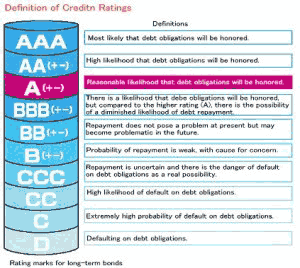 It’s still very much up in the air as to what FinReg will look like, but one thing you can probably count on is that there will be unintended consequences — some good and some bad.
It’s still very much up in the air as to what FinReg will look like, but one thing you can probably count on is that there will be unintended consequences — some good and some bad.
An article this evening in the WSJ points out one of the problems we might encounter:
The financial-overhaul bill passed last week brings big banks closer to what could be major credit-ratings downgrades that would sock them with billions of dollars in additional financing costs.
Implicit government support for “too big to fail” banks such as Citigroup Inc. and Bank of America Corp. means those banks get higher marks from rating companies Moody’s Investors Service and Standard & Poor’s than they would if the possibility of collapse weren’t ruled out. The theory is that an implied government safety net makes owning the banks’ bonds less risky. The rating companies have warned that they will cut bank ratings, possibly severely, if that safety net thins or goes away.
The regulatory-overhaul bill passed by the Senate weakens that safety net significantly, while also curbing bank risk-taking and, some analysts argue, profitability. If the final bill, currently being negotiated between the House and Senate, shares those characteristics, then the rating companies will almost certainly lower credit ratings for some of the biggest banks.
“Rating agencies give banks credit for the assumption they’ll be saved. When you pass a law that says ‘we’re not going to save them,’ the agencies will downgrade them,” said Leslie Barbi, head of public fixed income for Guardian Investor Services, a unit of Guardian Life Insurance Co., “even if people believe they will be saved anyway.”
“There’s a high probability that some of the systemically important banks will face rating downgrades” as a result of the overhaul, added Nomura Securities International analyst David Havens.
I know this won’t cause most of you to shed a lot of tears. And to the extent that it causes a more sober assessment of the credit risk inherent in the financial sector, then that’s probably not a bad thing. But, if indeed this should come to pass, a banking sector that’s IMO not as far out of the woods as many would suggest could be in for a nasty hit.
Leaving the banks aside for a second, I thought the concluding paragraph of the article was possibly the most intriguing part.
“One thing interesting about the Senate bill is that it makes it easier to sue rating agencies,” said Len Blum, managing director at Westwood Capital, a New York investment bank, “which means they will be a little more careful.”
I plan to have more to say about this later this week, but I like the tone here. I detest the idea that we have to turn to the plaintiff’s bar to solve this problem and I think that there are some better alternatives, but for now it will have to do. If we are going to stick with this flawed system, at least those who are remunerated for sticking labels on securities should have to know that there are consequences attendant to their actions.


Leave a Reply